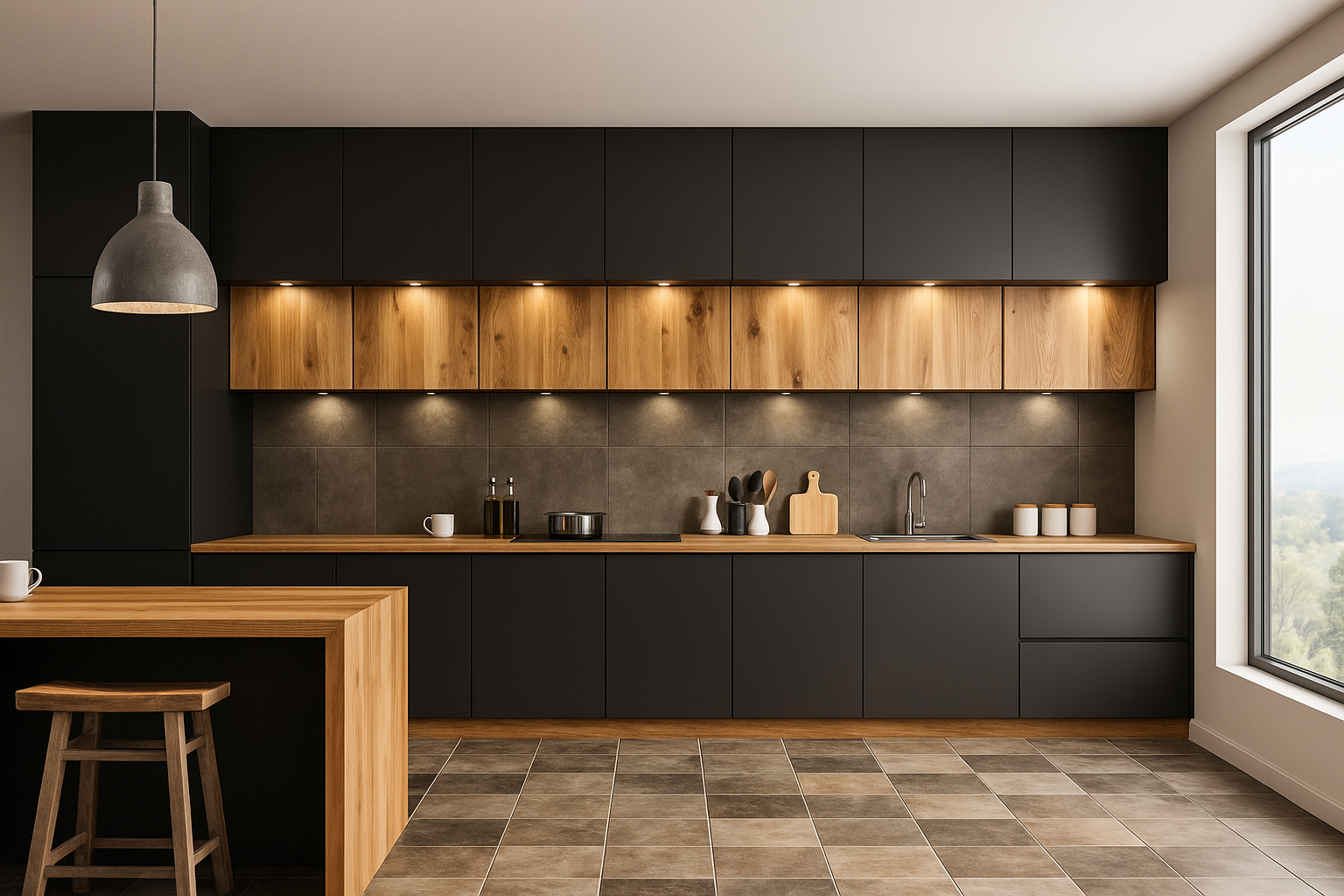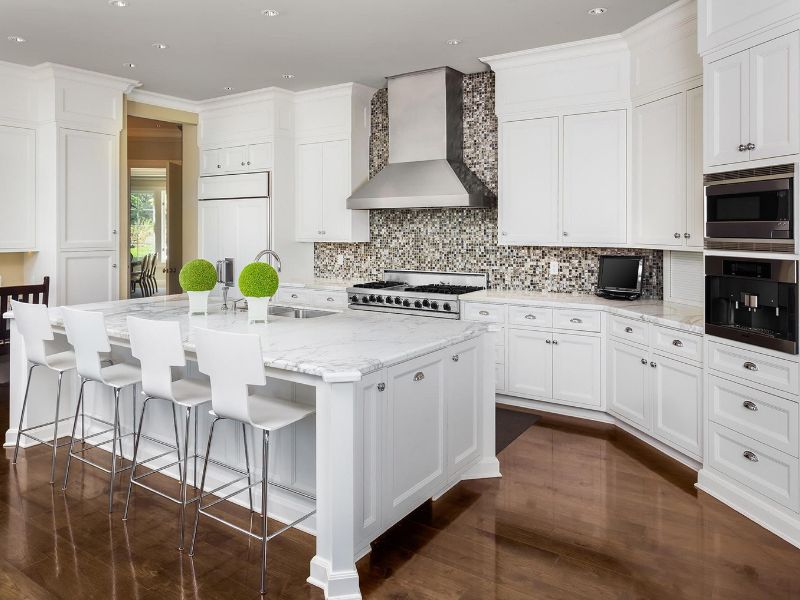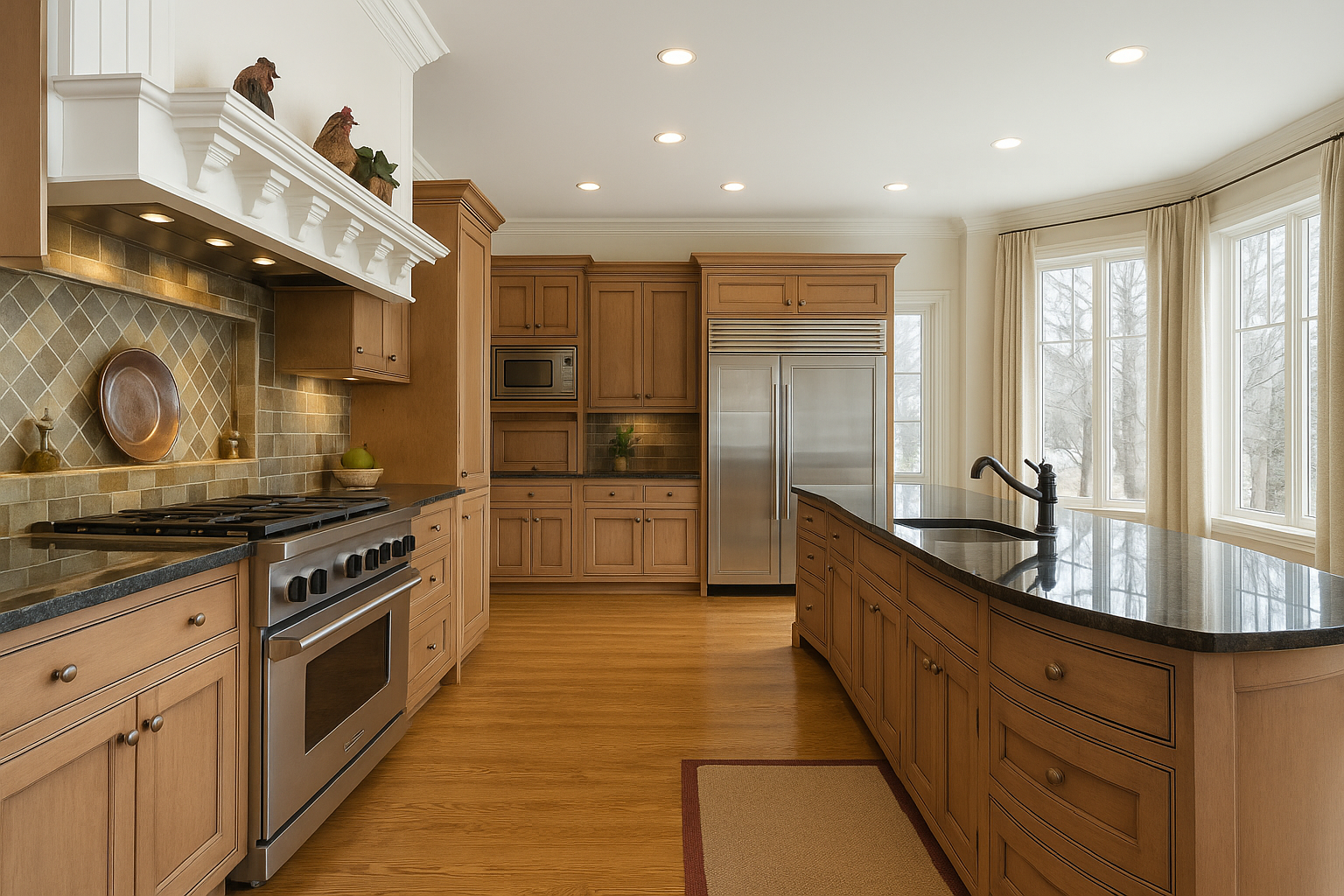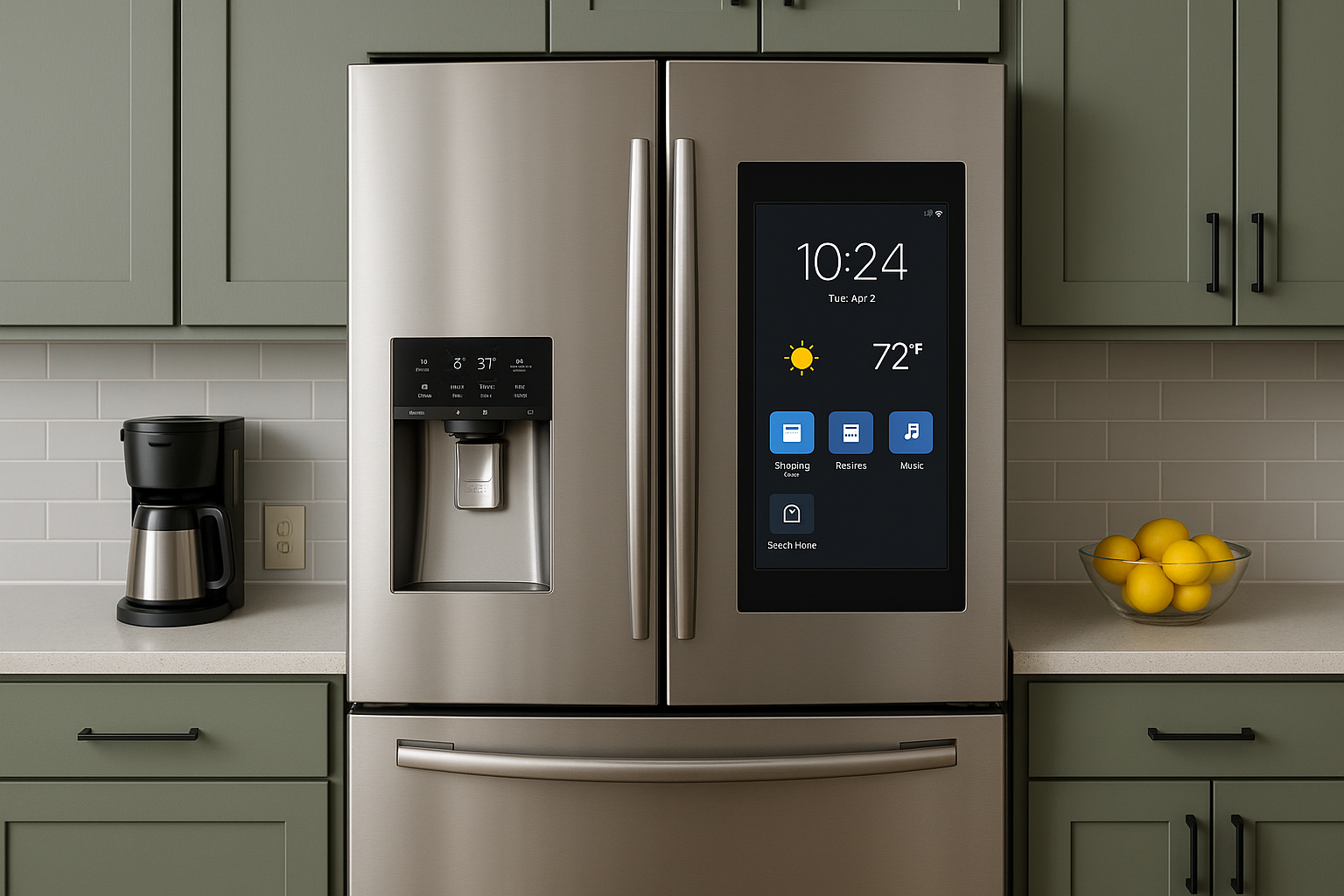Create the perfect lighting scheme for your kitchen with this comprehensive guide to layered lighting, fixture selection, and design tips specifically for Tulsa homes.
The Importance of Kitchen Lighting Design
Kitchen lighting is one of the most critical aspects of kitchen design, yet it's often overlooked until the final stages of renovation. Proper lighting affects everything from food preparation safety to the overall ambiance of your space. In Tulsa homes, where the kitchen often serves as the heart of family gatherings, thoughtful lighting design can transform an ordinary space into an extraordinary one.
This comprehensive guide covers the essential elements of kitchen lighting design, from understanding different types of lighting to selecting fixtures that complement your Tulsa home's style and function.
Understanding the Three Types of Kitchen Lighting
Task Lighting
Task lighting provides focused illumination for specific work areas:
- Under-cabinet lighting: Illuminates countertop work surfaces
- Pendant lights over islands: Focused light for food prep and casual dining
- Range hood lighting: Illuminates cooking surface
- Interior cabinet lighting: Makes finding items easier
- Toe-kick lighting: Provides subtle floor-level illumination
Task lighting should be bright enough for safe food preparation while minimizing shadows on work surfaces.
Ambient Lighting
Ambient lighting provides general illumination for the entire space:
- Recessed ceiling lights: Even distribution of general light
- Flush-mount fixtures: Good for lower ceilings
- Track lighting: Adjustable directional lighting
- Chandelier or large pendants: Statement lighting over dining areas
Ambient lighting should provide comfortable overall illumination without harsh shadows or glare.
Accent Lighting
Accent lighting adds visual interest and highlights architectural features:
- Display case lighting: Showcases dishes or collections
- Backsplash lighting: Highlights decorative tile work
- Cove lighting: Indirect lighting above cabinets
- Decorative pendants: Serve as both light and art
Kitchen Lighting Layout Planning
Assessing Your Space
Before selecting fixtures, evaluate your kitchen's unique characteristics:
- Ceiling height: Affects fixture selection and placement
- Natural light sources: Windows and skylights impact lighting needs
- Kitchen size and layout: Determines number and placement of fixtures
- Cabinet configuration: Affects under-cabinet and interior lighting options
- Color scheme: Light and dark surfaces reflect light differently
Creating Lighting Zones
Divide your kitchen into functional zones:
- Preparation zone: Countertops where food is prepared
- Cooking zone: Range, oven, and surrounding areas
- Cleaning zone: Sink and dishwasher area
- Storage zones: Pantry, cabinets, and refrigerator areas
- Dining zone: Breakfast bar, island seating, or eat-in area
Fixture Selection by Kitchen Area
Over Kitchen Islands and Peninsulas
Islands require focused task lighting with style:
- Pendant lights: Most popular choice, hang 30-36 inches above counter
- Linear suspension lights: Single fixture over long islands
- Multiple mini-pendants: Three or more small pendants for visual interest
- Track lighting: Adjustable option for flexibility
Pendant Light Sizing Guidelines:
- Small island (4-5 feet): Two 8-12 inch pendants
- Medium island (6-7 feet): Two 12-16 inch pendants or three smaller ones
- Large island (8+ feet): Three large pendants or linear fixture
Under-Cabinet Lighting
Essential for countertop task lighting:
- LED strip lights: Continuous, even illumination
- LED puck lights: Discrete fixtures with focused beams
- Linear LED fixtures: Sleek, modern appearance
- Xenon or halogen: Warm light but higher energy use
Installation Tips:
- Install fixtures toward the front of cabinets to minimize shadows
- Use dimmer controls for adjustable brightness
- Hide transformers and connections inside cabinets
- Choose warm white LEDs (2700K-3000K) for residential settings
Recessed Lighting
Provides general ambient lighting throughout the kitchen:
- 4-inch fixtures: Good for standard ceiling heights (8-9 feet)
- 6-inch fixtures: Better for higher ceilings or larger rooms
- Adjustable trim: Direct light where needed
- Baffle trim: Reduces glare
Spacing Guidelines:
- Space fixtures 4-6 feet apart for even coverage
- Place fixtures 18-24 inches from walls
- Avoid placing directly over seating areas to prevent glare
Lighting Controls and Technology
Dimmer Controls
Essential for creating ambiance and saving energy:
- Standard dimmers: Basic brightness control
- Smart dimmers: App control and scheduling
- Scene controllers: Multiple preset lighting levels
- Motion sensors: Automatic on/off for convenience
Smart Lighting Systems
Modern technology for enhanced control:
- WiFi-enabled fixtures: Control from smartphone apps
- Voice control integration: Alexa, Google Home compatibility
- Color-changing LEDs: Adjust color temperature throughout day
- Scheduling features: Automatic lighting based on time
Energy Efficiency Considerations
LED Technology Benefits
LED lighting offers significant advantages for kitchens:
- Energy savings: 80% less energy than incandescent
- Long lifespan: 25,000-50,000 hours of use
- Low heat output: Important in warm Tulsa climate
- Instant on: No warm-up time required
- Dimmable options: Most LEDs now work with dimmers
Color Temperature Selection
Choose appropriate color temperatures for different areas:
- 2700K-3000K (Warm White): Cozy, residential feel for dining areas
- 3500K-4000K (Cool White): Good for general kitchen lighting
- 4000K-5000K (Daylight): Excellent for detailed task work
- Variable color temperature: Adjust throughout the day
Popular Fixture Styles for Tulsa Homes
Traditional Style Fixtures
Classic options that complement Tulsa's historic homes:
- Lantern-style pendants: Farmhouse and traditional appeal
- Crystal chandeliers: Elegant focal points over islands
- Bronze or brass finishes: Warm, classic metal tones
- Glass globe pendants: Timeless, versatile design
Modern and Contemporary Fixtures
Clean, minimalist designs for updated kitchens:
- Geometric pendants: Angular, architectural shapes
- Linear suspension lights: Sleek, modern appearance
- Matte black or brushed nickel: Popular contemporary finishes
- Minimal track lighting: Functional and unobtrusive
Transitional Style Fixtures
Blend traditional and modern elements:
- Drum shade pendants: Soft, versatile design
- Mixed material fixtures: Wood and metal combinations
- Updated classic shapes: Traditional forms with modern finishes
- Industrial influences: Edison bulbs and exposed elements
Budget Considerations for Kitchen Lighting
Budget-Friendly Options
Quality lighting on a smaller budget:
- Track lighting systems: $200-500 for complete system
- Basic LED under-cabinet strips: $50-150 per run
- Simple pendant lights: $75-200 each
- Standard recessed fixtures: $25-75 per fixture
Mid-Range Lighting ($2,000-5,000)
- Designer pendant lights: $200-500 each
- High-quality under-cabinet LEDs: $150-400 per run
- Smart lighting controls: $100-300 per switch
- Decorative chandelier: $400-1,200
High-End Lighting ($5,000+)
- Custom or designer fixtures: $500-2,000+ each
- Integrated smart home systems: $1,000-3,000
- Specialty accent lighting: $500-1,500
- Professional lighting design: $500-2,000
Installation Considerations
Electrical Requirements
Most kitchen lighting upgrades require electrical work:
- New circuits: May be needed for additional fixtures
- Dimmer compatibility: Ensure switches work with LED fixtures
- Code compliance: Meet local electrical codes
- Professional installation: Required for most hard-wired fixtures
Timing with Renovation
Coordinate lighting installation with other trades:
- Rough-in electrical: Before drywall installation
- Under-cabinet wiring: Before cabinet installation
- Fixture installation: After painting and finish work
- Final programming: After all fixtures are installed
Common Kitchen Lighting Mistakes
Design Mistakes to Avoid
- Insufficient task lighting: Dark work surfaces are unsafe
- Too few fixtures: Inadequate overall illumination
- Poor fixture placement: Creates shadows where you work
- Wrong size fixtures: Pendants too large or small for space
- Mismatched color temperatures: Inconsistent lighting appearance
Installation Mistakes
- Fixtures hung too low: Blocks sight lines and creates glare
- No dimmer controls: Limited lighting flexibility
- Inadequate switch locations: Poor lighting control placement
- Missing GFCI protection: Safety code violations
Maintenance and Longevity
Keeping Fixtures Clean
- Regular dusting: Maintain light output efficiency
- Glass cleaning: Use appropriate cleaners for fixture materials
- Grease removal: Important near cooking areas
- Professional cleaning: For complex or high fixtures
LED Maintenance
- Driver replacement: May need replacement before LEDs
- Dimmer compatibility: Update dimmers as needed
- Color consistency: Replace fixtures in groups when needed
- Warranty service: Keep documentation for warranty claims
Seasonal Lighting Considerations for Tulsa
Summer Lighting Needs
- Reduce heat generation: LED fixtures produce less heat
- Daylight integration: Take advantage of long summer days
- Outdoor entertaining: Consider patio and deck lighting
- Energy efficiency: Minimize air conditioning load
Winter Lighting Considerations
- Compensate for shorter days: More artificial lighting needed
- Warm color temperatures: Create cozy atmosphere
- Accent lighting: Add visual warmth to space
- Holiday lighting integration: Plan for seasonal decorations
Working with Lighting Professionals
When to Hire a Lighting Designer
- Complex layouts: Open concept or unusual configurations
- High-end renovations: Investment in professional design
- Smart home integration: Complex control systems
- Specialty requirements: Unique lighting needs or challenges
Working with Electrical Contractors
- Licensed professionals: Required for most installations
- Code compliance: Ensure all work meets local codes
- Permit requirements: Obtain necessary permits
- Integration planning: Coordinate with other trades
Conclusion: Creating Your Perfect Kitchen Lighting
Effective kitchen lighting design requires careful planning of task, ambient, and accent lighting to create a space that's both functional and beautiful. By understanding the principles of layered lighting and selecting appropriate fixtures for your Tulsa home's style and needs, you can transform your kitchen into a space that works perfectly for cooking, entertaining, and daily family life.
Remember that good lighting design is an investment in both safety and enjoyment of your kitchen space. Whether you're updating a few fixtures or planning a complete lighting overhaul, thoughtful design will enhance your kitchen's functionality and appeal for years to come.
Ready to illuminate your kitchen renovation? Our team at Shepherd Construction works with experienced lighting designers and electrical contractors to create beautiful, functional lighting schemes for Tulsa kitchens. Contact us to discuss your lighting goals and let us help you create the perfect ambiance for your space.



